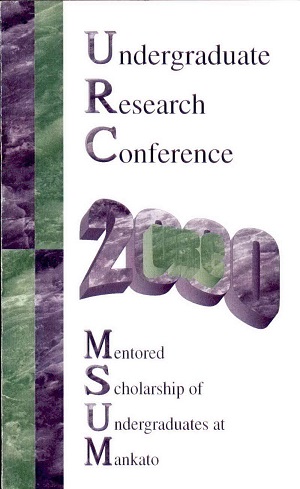In-Situ Molecular Adsorption Characterization Via Attenuated Total Reflectance Ft-Ir Spectroscopy
Location
CSU
Student's Major
Chemistry and Geology
Student's College
Science, Engineering and Technology
Mentor's Name
John Thoemke
Mentor's Department
Chemistry and Geology
Mentor's College
Science, Engineering and Technology
Description
The environmental behavior of molecules adsorbed to soil particles continues to be of interest because of the widespread use of herbicides, pesticides, and fertilizers. A large body of work exists dealing with the macroscopic adsorption behavior of organic molecules in soils, but little is known about the details of how these molecules interact with the soil at the molecular level. Our work utilizes a relatively novel technique known as Attenuated Total Reflectance Fourier Transform- Infrared Spectroscopy to examine adsorbed molecules in situ. This method allows real-time structural information to be obtained without destroying or modifying the soil adsorbed molecules. We hope to use this technique to characterize and assess the chemical interactions of organic functional groups with various soil types in order to better understand the fate of these molecules in the environment.
In-Situ Molecular Adsorption Characterization Via Attenuated Total Reflectance Ft-Ir Spectroscopy
CSU
The environmental behavior of molecules adsorbed to soil particles continues to be of interest because of the widespread use of herbicides, pesticides, and fertilizers. A large body of work exists dealing with the macroscopic adsorption behavior of organic molecules in soils, but little is known about the details of how these molecules interact with the soil at the molecular level. Our work utilizes a relatively novel technique known as Attenuated Total Reflectance Fourier Transform- Infrared Spectroscopy to examine adsorbed molecules in situ. This method allows real-time structural information to be obtained without destroying or modifying the soil adsorbed molecules. We hope to use this technique to characterize and assess the chemical interactions of organic functional groups with various soil types in order to better understand the fate of these molecules in the environment.




